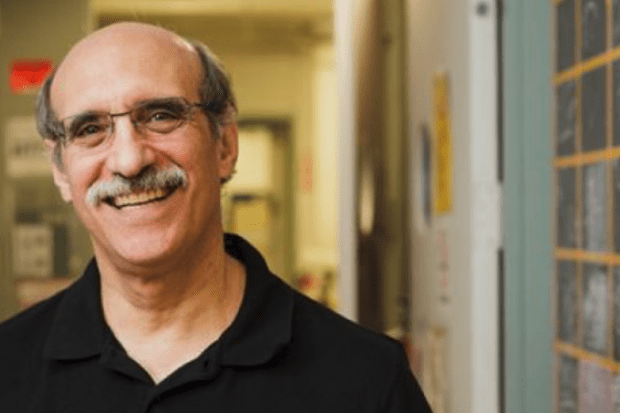Young academics who “play the game” to try to get ahead career-wise – publishing in “top” journals and networking with their seniors – are actually less likely to win permanent university jobs, a Nobel laureate has claimed.
Instead, those who do eventually win tenure tend to take the attitude that “I don’t care. I’m getting the work done,” argued Martin Chalfie, who won the prize in chemistry in 2008 for discovering green fluorescent protein, in an interview in which he highlighted what he considered to be common mistakes made by graduate students seeking to forge ahead with a scientific career.
Professor Chalfie spoke to Times Higher Education at last month’s Lindau Nobel Laureate Meeting, a conference of prizewinners and young scientists held annually in Germany, where he told attendees that “99 per cent” of graduate students apply for a postdoctoral position in the wrong way.
Most send out a CV and three references then simply ask whether there is space for them, he said. “This gets a standard reply,” which is: “I have no room in the lab.”
One of the most common complaints from young scientists attending the conference was that they had to publish in the “right” journals to have any chance of making it in the fiercely competitive academic job market.
But speaking to THE, Professor Chalfie, a professor in Columbia University’s department of biological sciences, sought to dampen fears about how academic hiring really works. Scientists who “play the game” are “missing a very important point”, he said. “Those are irrelevant things. What’s important is what you found out” – this, he added, was more important than “all the networking in the world”.
There is empirical evidence for this, he said. Professor Chalfie has counted through 73 prizewinning papers in medicine, physiology and biochemistry and found that half of them were published in Nature, Cell or Science, which some consider to be career-making journals.
“It is a high proportion,” Professor Chalfie admitted, but he stressed that the other half were published “everywhere”, in “all sorts of journals”. The “most productive person who has ever been in my lab” – and is now setting up his own – has never been published in any of these three journals, he added. “He didn’t get a job because of the impact factor of his work – he made an impact.”
Professor Chalfie said that, if he received a CV that included journal impact factors alongside published articles, he would “take a Magic Marker and black that stuff out” because it showed that the applicant was “thinking about the wrong thing”.
Too often, graduate students hoping to do postdoctoral work view it as a “second time to do your graduate work”, he warned. He would advise them not to send out CVs in scattergun fashion but rather to actually read the papers of researchers they want to work with, and then spend a month or so working up a two- to three-page proposal outlining what they would want to do with them.
“Virtually” everyone from his lab who has followed this approach and has “put some effort and time” into making and submitting such a proposal has landed their first-choice lab for postdoctoral work.
Some young scientists are simply “afraid” of going through “the exercise of coming up with ideas”, Professor Chalfie argued. He recounted meeting two early career scientists at a conference who were keen to work with him. He asked them to come up with a proposal. “And they just could not do it…in the end they did not apply,” he said.
Behind some of this reluctance by young scientists to think of themselves as “colleagues” as opposed to students when applying for postdoctoral positions, are unhelpfully strict hierarchies in science, he said.
Many think: “How can I, a mere graduate student…go and write to this great person?” he bemoaned. “How can I tell that person my measly idea?”
But the point of a postdoctoral proposal is not to inform a respected scientist that their ideas are “completely wrong”; rather, he said, young researchers, having become familiar with their work, should simply ask: “What should be the next experiment?”
Do the litany of honours, societies and prizes in academia – including the Nobel prize itself – make scientific hierarchies more unbridgeable and intimidating for those starting out on their careers?
Many Nobel laureates try to break down these barriers, said Professor Chalfie. But even he, a Nobel prizewinner himself, has “certainly felt intimidated” by laureates and other acknowledged field leaders – whose status made him reticent and cautious about speaking to them earlier in his career. “It would have been better for me and my life if I had not had those hesitations and reservations,” he reminisced.
Register to continue
Why register?
- Registration is free and only takes a moment
- Once registered, you can read 3 articles a month
- Sign up for our newsletter
Subscribe
Or subscribe for unlimited access to:
- Unlimited access to news, views, insights & reviews
- Digital editions
- Digital access to THE’s university and college rankings analysis
Already registered or a current subscriber? Login








